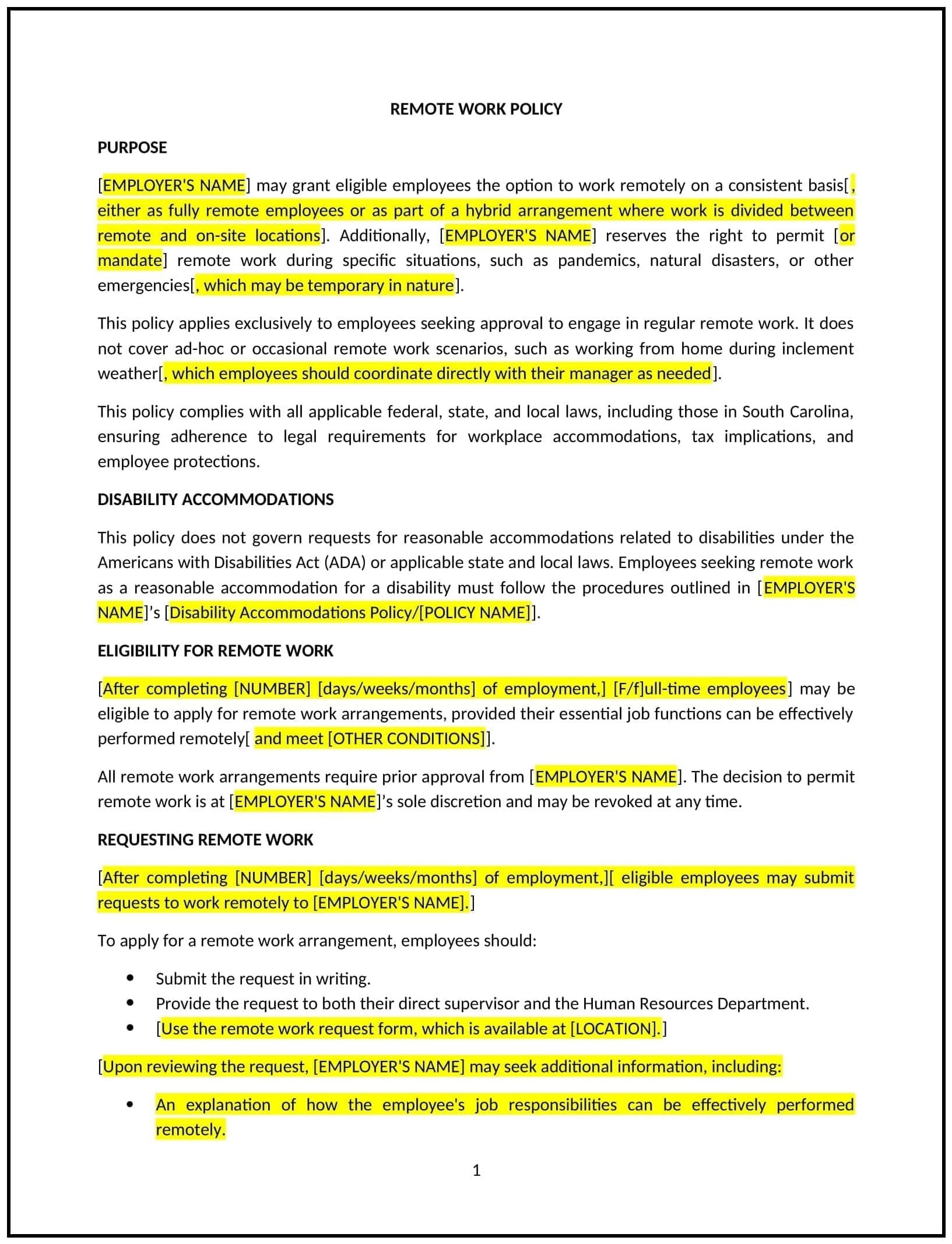Got contracts to review? While you're here for policies, let Cobrief make contract review effortless—start your free review now.

Customize this template for free
Remote work policy (South Carolina)
This remote work policy is designed to help South Carolina businesses establish guidelines for employees working outside the traditional office environment. It outlines procedures for requesting remote work, maintaining productivity, and ensuring effective communication and collaboration.
By adopting this policy, businesses can offer flexibility, support work-life balance, and align with general best practices for remote work arrangements.
How to use this remote work policy (South Carolina)
- Define remote work: Explain what constitutes remote work, such as working from home, co-working spaces, or other off-site locations.
- Establish eligibility criteria: Specify which employees are eligible for remote work, such as those in roles that allow for independent work.
- Set request procedures: Provide steps for employees to request remote work, including required notice and approval processes.
- Address productivity expectations: Outline expectations for maintaining productivity and meeting job responsibilities while working remotely.
- Train managers: Educate supervisors on managing remote teams and maintaining effective communication.
- Review and update: Assess the policy annually to ensure it aligns with evolving business needs and remote work standards.
Benefits of using this remote work policy (South Carolina)
This policy offers several advantages for South Carolina businesses:
- Offers flexibility: Provides employees with the option to work remotely, supporting work-life balance.
- Enhances productivity: Allows employees to work in environments where they are most productive.
- Aligns with best practices: Provides a structured approach to managing remote work arrangements.
- Attracts top talent: Appeals to candidates seeking flexible work options.
- Reduces overhead costs: Minimizes expenses related to office space and utilities.
Tips for using this remote work policy (South Carolina)
- Communicate the policy: Share the policy with employees and include it in the employee handbook.
- Provide training: Educate managers on managing remote teams and maintaining effective communication.
- Monitor adherence: Regularly review remote work arrangements to ensure they meet productivity and business needs.
- Address issues promptly: Take corrective action if remote work arrangements negatively impact team performance.
- Update regularly: Assess the policy annually to ensure it aligns with evolving business needs and remote work standards.